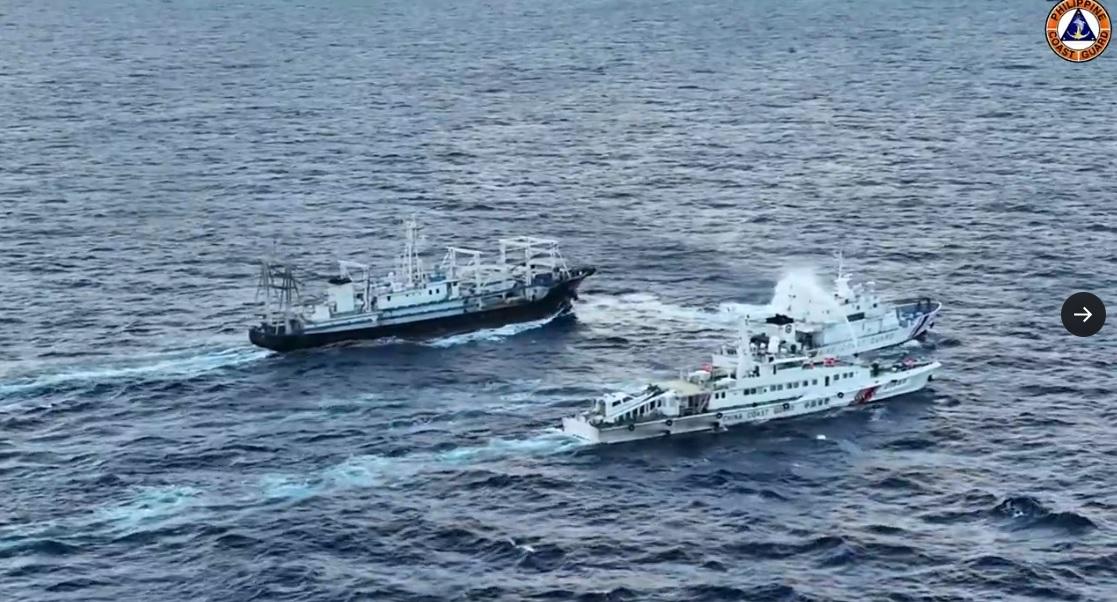PH says China increased electronic interference in WPS
By JOVILAND RITA, GMA Integrated News Published February 27, 2024 1:00pm China has increased its interference on the electronic communication capabilities of Philippine Navy vessels in the West Philippine Sea (WPS), a Navy spokesperson said Tuesday. In a press conference, Philippine Navy spokesperson for West Philippines Sea (WPS) Commodore Roy Vincent Trinidad said this has […]


By JOVILAND RITA, GMA Integrated News
China has increased its interference on the electronic communication capabilities of Philippine Navy vessels in the West Philippine Sea (WPS), a Navy spokesperson said Tuesday.
In a press conference, Philippine Navy spokesperson for West Philippines Sea (WPS) Commodore Roy Vincent Trinidad said this has been going on for around four years.
“The activities of China in the WPS have been going on for quite some time now when it comes to interference on our electronic capabilities. I have discussed this with the commander of the Naval Forces West this morning. And it has been going on for the past three to four years, maybe even earlier,” he said.
“There was an increase in cyber interference, electronic interference and jammings and stuff like that, not only for equipment of the ship but also for land-based communication equipment,” Trinidad added.
Trinidad noted that these interference usually happened during the cooperation stages for rotation and resupply missions to the WPS.
The Philippine Navy made the statement following the report of the Philippine Coast Guard (PCG) that China may be jamming the signal in the WPS to prevent the agency from disproving Beijing’s claims of driving away Philippine vessels from the area.
“We assume that they do the jamming every time they release their statements that they repelled our vessels,” PCG spokesperson for the WPS Commodore Jay Tarriela told reporters on Sunday.
“Through such jamming, any commercial [automatic identification system] monitoring cannot also disprove such statement because they may not be able to find our vessels,” he added.
According to Trinidad on Tuesday, the interference only had minimal effect on the sea-based operations of the Philippine Navy because it never reached the military’s navigation functions.
“These are more on the communications on land, cellphones, but on the overall impact on the operation they do not really cause a significant impact,” he said.
GMA News Online has sought comment from the Chinese Embassy in Manila on the matter, but it has yet to provide a statement as of posting time.
China claims almost the entire South China Sea, a conduit for more than $3 trillion in annual ship commerce. Its territorial claims overlap with those of the Philippines, Vietnam, Malaysia and Brunei. The Philippines calls its portion of South China Sea as West Philippine Sea. —KBK, GMA Integrated News














